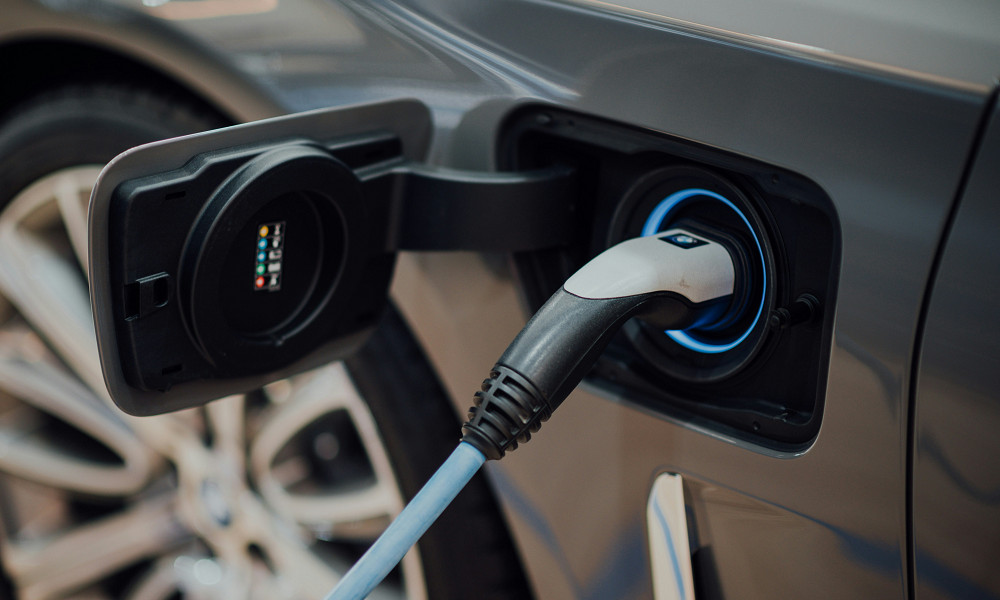Reviews
The Rising Trend of Electric Vehicles in the U.S.: Safety, Accidents, and Legal Implications

Electric vehicles (EVs) are no longer a futuristic concept—they’re increasingly becoming part of daily life across the United States. From bustling cities like New York and Los Angeles to suburban streets in Houston and Austin, EVs are quietly reshaping transportation. But with this rapid rise comes a set of safety and legal challenges that drivers, pedestrians, and policymakers are still learning to navigate.
EV Adoption is Accelerating—But So Are Questions About Safety
According to the National Highway Traffic Safety Administration (NHTSA), EV registrations in the U.S. jumped by nearly 40% in 2024 alone, signaling a significant shift in the automotive landscape. With more EVs on the road, discussions about safety have intensified.
Unlike traditional vehicles, EVs are heavier due to their battery packs and are often nearly silent at low speeds. While this helps reduce emissions and overall road noise, it also increases the risk of low-speed collisions with pedestrians and cyclists. Recent studies have highlighted that silent EVs can be harder to hear, especially in urban areas, leading to accidents that may not have occurred with conventional vehicles.
But accidents aren’t just about EV design. Human factors—speeding, distracted driving, and fatigue still play a major role. Even with the most advanced technology, a distracted driver behind the wheel remains the leading cause of crashes nationwide.
When Accidents Happen: The Role of Legal Guidance
Even though EVs are often marketed as safer in terms of crash structure and advanced safety features, accidents inevitably occur. This is where personal injury lawyers become a critical resource.
A personal injury lawyer can help accident victims understand liability, navigate insurance claims, and secure proper compensation for medical costs, vehicle repairs, and lost income. For instance, in multi-vehicle collisions involving EVs, determining fault may be complicated by new technology—such as automated braking systems or semi-autonomous driving features. Knowing your rights and having legal guidance is vital for anyone injured in these incidents.
While no one wants to think about accidents when buying a new EV, experts agree that understanding legal options beforehand can prevent confusion and stress if an accident does occur.
Accident Statistics and Emerging Patterns
Recent traffic data reveals some interesting trends. While EVs tend to have lower overall accident rates due to automatic safety systems, accidents that do occur are often at intersections or involve pedestrians. According to a 2025 report by the Insurance Institute for Highway Safety (IIHS), nearly 25% of EV accidents in urban areas involve pedestrians or cyclists, compared to 15% for conventional vehicles.
Moreover, the heavier battery weight in EVs can sometimes result in more significant property damage, even in low-speed collisions. This isn’t to say EVs are unsafe—they are statistically safer in many scenarios—but it does highlight a new set of challenges for drivers, insurers, and lawmakers.
Regulatory Landscape: How Laws Are Evolving
Regulation around EV safety is also catching up. Several states, including California, New York, and Texas, are introducing legislation requiring audible warning sounds for low-speed EV movement to reduce pedestrian accidents. Additionally, crash testing standards are being updated to account for EV-specific risks, including battery fires and side-impact scenarios.
Insurance companies are similarly adjusting their policies. Some have started considering EV-specific repair costs, battery replacement, and specialized accident liability issues when calculating premiums. For the average driver, this means that even though EVs are environmentally friendly, there’s a legal and financial learning curve to understand how accidents are handled.
Recent crash tests show that while electric vehicles are generally safer in frontal collisions, certain models face challenges in side-impact scenarios. The IIHS recently unveiled new ratings for seven electric vehicles, highlighting which models performed best in updated safety tests.
Practical Steps for EV Drivers
Whether you’re an early adopter or considering your first EV purchase, understanding safety and legal responsibilities is crucial. Experts recommend:
- Stay Alert: The quiet nature of EVs can be deceiving; pay extra attention to pedestrians, cyclists, and other vehicles at intersections.
- Maintain Your Vehicle: Regular checks of brakes, tires, and battery systems can prevent accidents caused by mechanical failure.
- Document Everything: In the unfortunate event of an accident, photos, witness statements, and clear notes can be invaluable when dealing with insurance or legal claims.
- Know Your Legal Rights: Accidents involving EVs can be complicated. Consulting a personal injury lawyer ensures that your rights are protected and that you understand the proper steps to take immediately following a crash.
Looking Ahead
As EV adoption continues to rise, so too will conversations about road safety, insurance, and legal responsibility. While technology can reduce certain types of accidents, the human factor remains a constant. Drivers, pedestrians, and policymakers alike must remain vigilant to ensure that the benefits of EVs are fully realized without compromising safety.
Interestingly, some insurance analysts predict that EVs may eventually reduce overall car accident costs, due to advanced safety systems like automatic emergency braking and lane assist. However, in the meantime, the combination of accident prevention knowledge, legal awareness, and safe driving practices remains essential.
Conclusion
Electric vehicles are undeniably shaping the future of transportation, but with innovation comes responsibility. Accidents, whether minor fender-benders or more serious collisions, will happen. Understanding the safety challenges, staying informed about evolving regulations, and knowing when to consult a personal injury lawyer are all crucial steps for navigating this new landscape responsibly.
The shift toward EVs is exciting, but as history has shown with every new automotive advancement, education, preparation, and awareness remain the keys to keeping our roads safe for everyone.

-

 Legal6 days ago
Legal6 days agoMichigan man JD Vance sentenced to 2 years for threatening Trump and JD Vance
-

 Politics1 week ago
Politics1 week agoU.S. to designate Maduro-linked Cartel de los Soles as terrorist organization
-

 Health7 days ago
Health7 days agoCambodia reports fatal H5N1 bird flu case in 22-year-old man
-

 World4 days ago
World4 days agoHurricane Melissa registered 252 mph wind gust, breaking global record
-

 Legal4 days ago
Legal4 days agoWoman in critical condition after being set on fire on Chicago train
-

 Politics1 week ago
Politics1 week agoEpstein survivors release PSA calling on Congress to release all files
-

 Legal4 days ago
Legal4 days ago1 dead, 2 injured in shooting at Dallas Walmart parking lot
-

 Legal3 days ago
Legal3 days agoSuspect in San Diego stabbing shot by authorities after fleeing into Mexico




